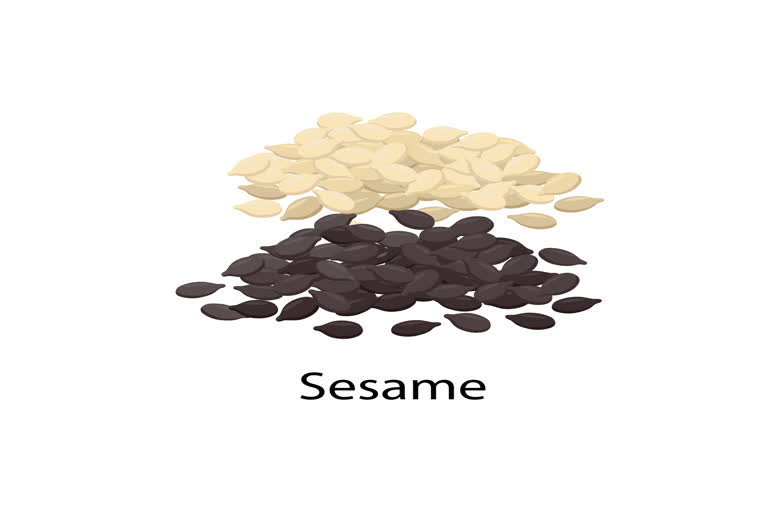Sesame seeds are tiny, oil-rich seeds that grow in pods on the Sesamum indicum plant. The seeds are of two types; black which contains the outer edible husk and off-white when dehusked. Sesame seeds have been used in traditional forms of medicine for thousands of years and have many potential health benefits. It occupies a prominent place in various rituals observed during Sankranti or Lohri. However, the use of sesame extends well beyond the festivals. Incorporating these items in festive foods ensures that each one of us eats at least a little and thereby be benefitted from its immense benefits.
ETV Bharat Sukhibhava was in conversation with Rohini Diniz, a nutritionist at Panaji, Goa to know more about these warming foods.
Nutrition in Sesame Seeds
Nutritionally sesame seeds are rich in MUFA oleic acid, protein, B-complex vitamins, vitamin E, calcium, magnesium, iron, manganese, zinc selenium,and copper. Oleic acid helps decrease high cholesterol and triglycerides — which are risk factors for heart disease. Sesame seeds are a cheap and delicious source of protein particularly for growing children, adolescents, pregnant and lactating mothers, and vegetarians. They are rich in calcium, magnesium,and several other nutrients that strengthen bones and prevent the development of osteoporosis.
Zinc helps in the production of red blood cells, blood circulation, and metabolism while copper has anti-inflammatory properties and helps reduce arthritis pain and swelling of joints. It also contains Vitamin E and selenium which are powerful antioxidants that help the body detoxify itself. Sesame seeds are rich in two unique chemicals called sesamol and sesamin which have antioxidant properties and help lower blood pressure. They also contain phytoestrogens which are plant compounds that mimic the effect of the hormone estrogen and may help relieve symptoms of menopause.
